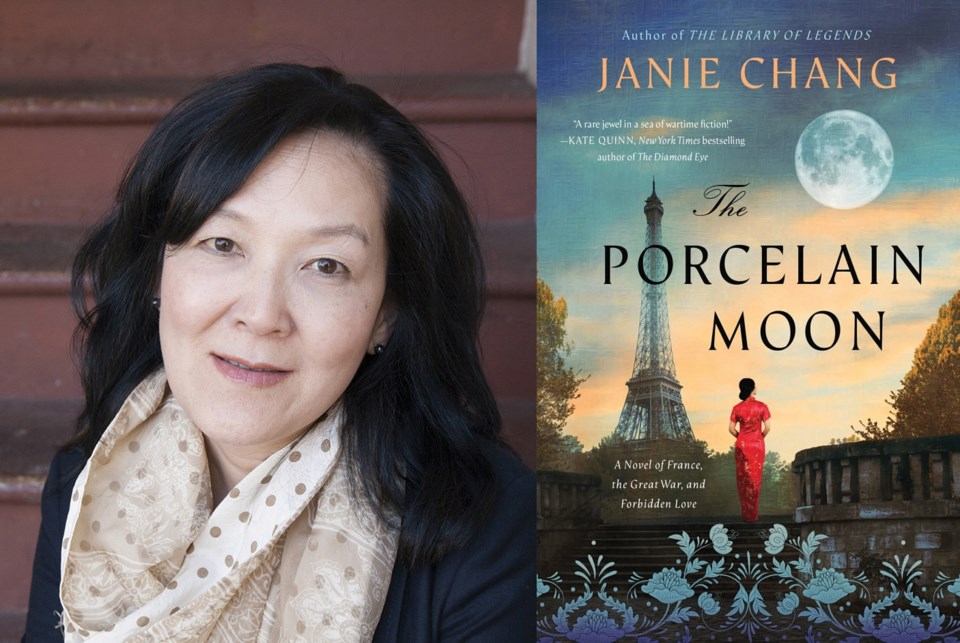A newly-released book by Sunshine Coast-based novelist Janie Chang publicly debuted last week in Sechelt, revealing a little-known chapter of the Chinese diaspora in wartime France.
Chang launched The Porcelain Moon, which is published by HarperCollins, at a public reception at the Sunshine Coast Arts Centre on Feb. 20. The book is her fourth work of historical fiction. It is also her first to be set outside of China.
“I set it very deliberately in Europe,” Chang said, “and this one has no fantasy elements.” Her earlier novels are permeated with elements of traditional Chinese spirituality.
“I read about and did research on Chinese workers during the First World War, so it had to be set in Europe,” Chang continued, “and I hoped it would open up a wider market because there are a lot of readers who want to know more about World One, which always has a sort of European-British-American focus on it, thanks to Hollywood.”
Matters of mixed national identity simmer throughout the story, which is itself multifaceted, blending slow-burning romance, historical exposition, and epistolary exchanges.
The friendship between two women — Shanghai-born Pauline Deng and Camille Roussel, from a township in northern France — becomes entangled with Pauline’s cousin Theo. Theo is part of the Chinese Labour Corps that worked in France and England from 1916 to 1920. As a translator with a secret struggle, Theo transforms his gnawing sense of personal deficiency into uncommon empathy.
A revelation by Camille imperils — then remakes — her relationship with Pauline, forging an unexpected future in a continent fraught by war. The last chapter leaps forward two decades to depict a moment of fragile serenity on the eve of yet another global cataclysm.
For Chang, her plot provided an opportunity to chronicle the forgotten history of noncombatant Chinese workers’ contributions to the European war effort.
“How do 140,000 men just kind of vanish?” She asked. “That really, really intrigued me and the whole thing surprised me so much.”
During her five years of research for the book, Chang obtained a thesis written by the curator of the Flanders Fields Museum in Ieper (Ypres), Belgium. It revealed that Chinese labourers had been welcome in France as long as they kept the machinery of war going, plowing fields and loading supplies. But after the conflict, thousands could not return to China because their three- to five-year contracts had not ended — and returning soldiers took priority for international transport. Remaining Chinese workers were assigned to hazardous duties like clearing battlefields of corpses, weaponry and rubble.
“At first, accounts about the Chinese were reasonably positive,” Chang said. “And then after the war, it became negative. It was just the way people were feeling about having these foreigners in their midst. I think the army is really good at getting people to war and not so good at dismantling it.”
Chang is originally from Taiwan and formerly worked in the technology sector. Her stories began to take shape when she put a tape recorder in front of her father, prompting him for recollections. She also credits The Writer’s Studio at Simon Fraser University for the impetus to produce the draft of her first book, Three Souls, in 2014.
“It was time to do something about being a writer,” said Chang, “instead of just talking about it and thinking about it and sort of wishing it to happen.”
The Porcelain Moon is available from online retailers and Sunshine Coast outlets, including Talewind Books (Sechelt) and the EarthFair Store in Madeira Park. Chang is already preparing her next book, a collaboration with author Kate Quinn, which is set in 1906 San Francisco. It will be released in September.



